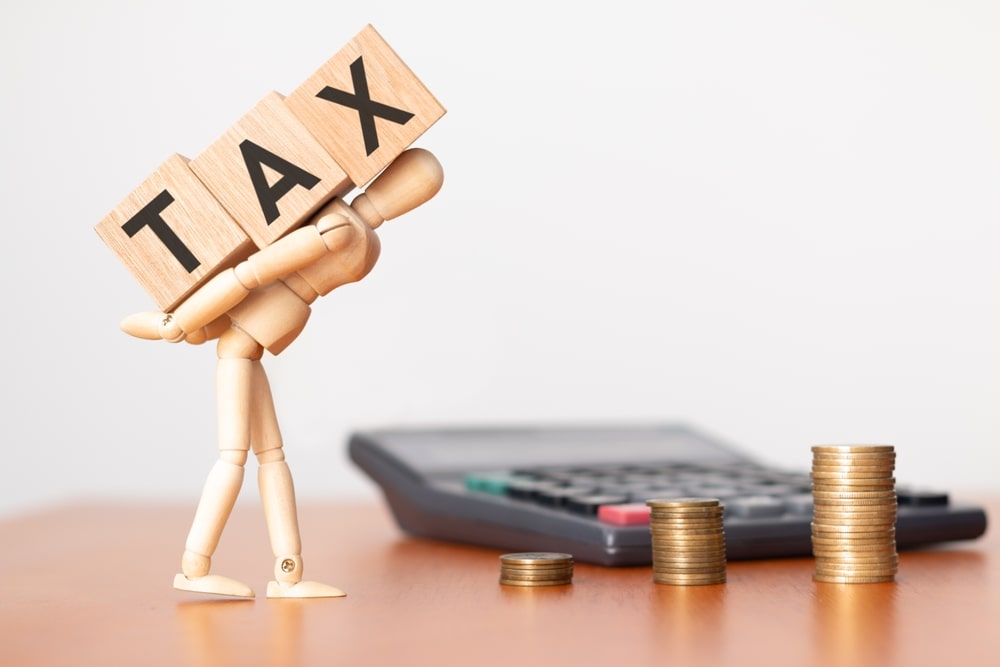
What Is IRS Debt? | How Tax Debt Happens and What to Do
What Is IRS Debt and Why Does It Happen?
What is IRS debt and how does it affect taxpayers? IRS debt is money you owe the Internal Revenue Service, typically from unpaid federal income taxes. This debt can accumulate quickly due to missed payments, underreporting income, or filing returns without paying the full balance. Over time, penalties and interest make the situation worse, often leading to serious collection actions.
Common Causes of IRS Debt
There are several reasons why taxpayers end up owing the IRS. Some are accidental; others result from financial hardship or confusion about the tax system.
Underpayment or Nonpayment of Taxes
If you didn’t withhold enough taxes throughout the year—or failed to pay your estimated taxes—your balance due could turn into debt after filing.
Filing a Tax Return With a Balance Due
When you file your return and owe money but don’t pay it, that balance becomes IRS debt. Even if you file on time, not paying in full triggers interest and penalties.
Misclassified Income (e.g., Self-Employed Workers)
Freelancers and gig workers often underpay taxes because they don’t have employer withholding. If you’re unsure about how to report income properly, seek help from a qualified tax relief expert.
Penalties and Interest Accrual Over Time
If the original balance isn’t paid off promptly, the IRS adds monthly interest and penalties. What starts as a small debt can snowball over time.
What Happens If You Don’t Pay IRS Debt
Failing to resolve your IRS debt can lead to a range of financial and legal problems.
Late Fees and Interest Penalties
The IRS charges failure-to-pay and failure-to-file penalties. Interest compounds daily, making the debt grow faster than many realize.
IRS Collection Actions (Liens, Levies, Garnishments)
Once your debt reaches a certain level, the IRS can file a federal tax lien, seize funds through a bank levy, or take a portion of your wages through garnishment.
Credit Score Impacts (Indirect Consequences)
While the IRS doesn’t report debt directly to credit bureaus, tax liens can become public records. If lenders discover them, your creditworthiness may be affected.
How the IRS Calculates and Tracks Your Debt
Understanding how the IRS keeps track of your balance helps you stay informed—and avoid surprises.
IRS Tax Transcripts and Balance Notices
Your IRS account transcript shows all activity, including assessments, penalties, and payments. You can also review mailed notices like CP14 or CP501 for current balances.
Automatic Interest and Penalty Calculations
Interest is calculated daily. Penalties vary depending on how late your return or payment is filed. For help with calculating your current balance or setting up relief, explore your options for tax debt resolution.
Ways to Settle or Reduce IRS Debt
The IRS offers several programs to help taxpayers pay what they owe—sometimes for less than the full balance.
Installment Agreements (Monthly Payment Plans)
If you can’t pay your debt in full, you may qualify for a payment plan that allows you to pay over time in monthly installments.
Offer in Compromise (OIC)
An Offer in Compromise allows you to settle your IRS debt for less if you can demonstrate serious financial hardship. It’s one of the most effective but most difficult programs to qualify for. Consider working with a tax lead generation professional who can connect you with trusted help.
Currently Not Collectible (CNC) Status
If you can’t afford to pay anything, the IRS may place your account in CNC status, temporarily stopping collections while your situation improves.
Penalty Abatement or Bankruptcy (in Rare Cases)
In some cases, the IRS may waive penalties. Certain tax debts may even be discharged in bankruptcy if specific conditions are met.
Understanding IRS Debt Is the First Step to Resolving It
Knowing what IRS debt is and how it starts can help you avoid common pitfalls. If you already owe money to the IRS, acting early is crucial. The longer you wait, the more you’ll owe. But there are programs that can help, and most people have options, even if they feel overwhelmed.
Need Help With IRS Debt? Talk to a Tax Relief Expert
If you’re asking what is IRS debt and how to deal with it, you’re not alone. IRS debt can feel intimidating, but solutions exist. Tax relief professionals understand how to navigate the IRS system and can represent you in tax matters.
Contact us today to speak with a licensed tax attorney who can discuss settlement options, represent you in IRS matters, and explain available relief programs.
Frequently Asked Questions
1. What is IRS debt and how do I know if I have it?
IRS debt is unpaid federal tax. You can check by reviewing IRS notices or logging into your IRS online account.
2. How much interest does the IRS charge on unpaid taxes?
The IRS charges interest based on the federal short-term rate plus 3%. This is compounded daily and changes quarterly.
3. Can IRS debt be forgiven?
Yes. Programs like Offer in Compromise or Innocent Spouse Relief can reduce or eliminate what you owe, depending on your situation.
4. Will IRS debt affect my credit score?
The IRS doesn’t report debt directly, but tax liens (if filed) can appear in public records and hurt your credit with lenders.
5. How can I resolve IRS debt without going to court?
You can use IRS payment plans, apply for debt relief programs, or work with a tax attorney to negotiate directly with the IRS.
Key Takeaways
- What is IRS debt? It’s unpaid tax owed to the government, plus interest and penalties.
- Common causes include underpayment, misreporting income, or missed deadlines.
- The IRS uses notices, liens, and levies to collect unresolved debt.
- Settlement programs like OIC and installment plans offer solutions.
- Early action and professional help can reduce stress and total costs.
Free Tax Case Review
If you are struggling with tax debt or have received a letter from the IRS complete the form below.Attorney Advertising. This site is a legal marketing service and does not provide legal advice. Submitting information does not create an attorney-client relationship. Results are not guaranteed.
IRS Audit
You received an audit notice from the IRS
Tax Debt Relief
You owe the IRS money and are looking for relief options
Wage Garnishment
The IRS is taking part of your wages to pay off your debt
Tax Lien
The IRS put a legal claim on your property
IRS Property Seizure
The IRS is going to take your property to pay down or pay off your tax debt
Penalty Abatement
You want to request to remove or reduce penalties assessed by IRS
Innocent Spouse Relief
Relief from joint tax debt caused by your spouse or former spouse
Tax Debt FAQ
Common facts, questions and answers about tax debt and tax debt reilef
Tax Debt Lawyer
A tax debt lawyer can help you with your tax debt problems
Recent Posts
- If I Owe the IRS But Can’t Afford to Pay: Your Relief Options
- Who Qualifies for the IRS Hardship Program: Understanding Currently Non-Collectible Status
- What Debts Qualify for the Fresh Start Program: Eligible Debt Checklist
- What Happens If You Owe the IRS More Than $25,000: Your Tax Relief Options
- IRS Tax Debt Relief Eligibility: Complete Guide to Qualifying for Tax Resolution Programs



